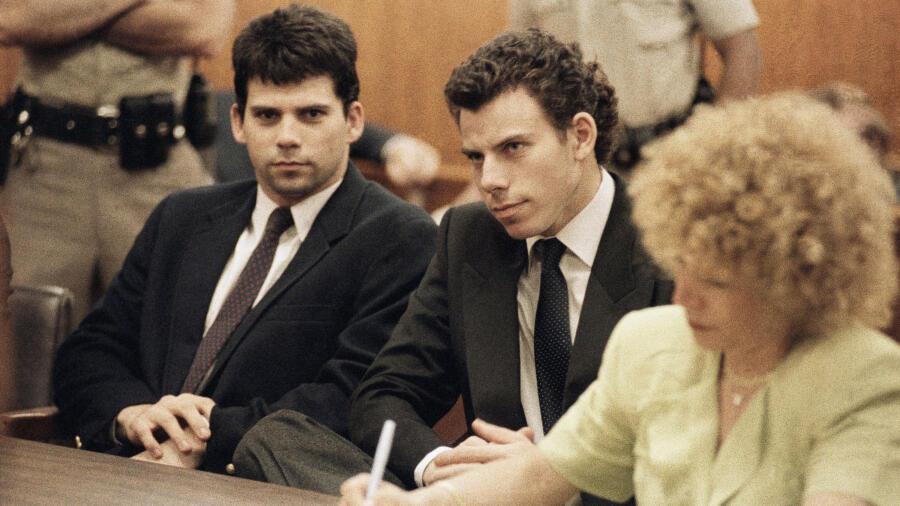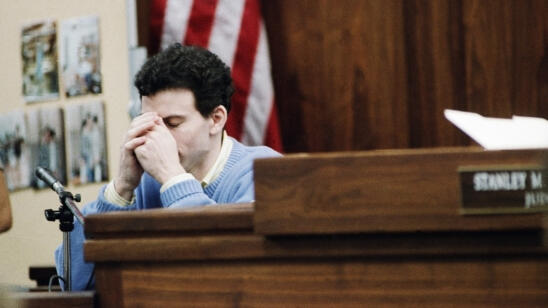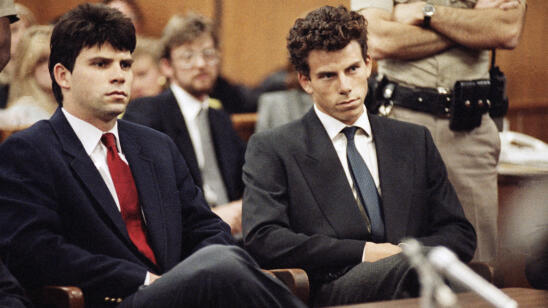Stuart Hart is an educational child psychologist and a professor emeritus at Indiana University, where he taught for 30 years. He also served as an expert defense witness in the trials of brothers Lyle and Erik Menendez, for the 1989 shotgun murders of their parents Jose and Kitty Menendez at their Beverly Hills home. At the time, Lyle was 21 and Erik was 18.
In that case, the prosecution argued that the brothers had been motivated by greed, pointing to the lavish shopping they did after the killings. The defense said the prime motive was sexual abuse the young men suffered at their father’s hands. After he began working on the case, Hart came to agree with the defense—when he took the stand, he argued strongly for the child-abuse defense. In 1996 Lyle and Erik Menendez were each sentenced to life in prison without the possibility of parole, but even today Hart views the homicides as a reaction to gross parental misconduct, rather than the work of cold, calculating killers.
Dr. Hart spoke with A&E True Crime about that case, and what he thinks ultimately drove the brothers to pull their triggers.
Can you briefly describe the work you’ve done on the Menendez Brothers case?
I’ve probably spent 600 to 800 hours on this case. I studied the available records—school, health, crime records that were available—and interviewed teachers, friends, girlfriends, family, extended family and a coach.
I spent 60 hours with Lyle before the first trial in the Los Angeles County Jail, and some interviews with Erik. In the second trial my focus was more on Erik.
Do you think Lyle and Erik had the same motive for killing their parents?
Probably at the center of it, they shared the central motive. They were brought up in a way [where] they were told—and managed repeatedly—to mistrust their own judgment, to rely on their father. When the killings occurred, I think the fairest way to describe it is that they were in a state of great fear, panic and hopelessness. And surely anger, too.
There were nuances to how they got there. When Lyle learned that his brother had [been] sexually abused all through these years, he was committed to protecting his brother. He approached his father and said, “You’re going to have to let him go; otherwise we’re going to tell.”
Sexual abuse is very much psychological abuse. In my best judgment, they were in a state where they feared he was going to kill them. And they had no history to suggest that anyone was going to come to their help. I had a teacher at the Princeton Day School [where the brothers were enrolled] tell me that she should’ve reported [the parents] for child abuse… but the teachers were intimidated by them.
[Watch The Menendez Brothers: Sins of the Children on A&E Crime Central.]
Is there any reason to be skeptical of the brothers’ sex-abuse defense? What makes their claim ring true for you?
The consistency of the reporting of it, and the details of the reporting of it. And the consistency of those details. And the fact that this is humiliating.
You had an adolescent girl cousin who was saying that Lyle confided—not in terms of clearly stating what he was experiencing—but telling her he wanted to stay in her room.
There was another cousin who Erik reported to. And that would’ve been quite a risk for them: As young children—Lyle was about eight or so—anything that got back to his father was going to mean serious problems. So much reporting of sexual abuse is a case of somebody describing what happened to them with nobody observing them.
Was Lyle the leader?
Well it probably would’ve looked that way to most people because he was a little older and had a wider sphere of activity and movement. Both are very talented, very smart guys. But Erik was under such pressure. He had great difficulty concentrating in school. His teachers in the 9th grade reported that he would cry in school, on average, every day of the week.
What about all the money they spent after the murders? What’s your response to the prosecution’s argument that these were sociopathic rich kids?
I found in the people I interviewed, the vast majority of them thought the notion they would do this for money made no sense at all. Money was never that important to them because they had money. They had credit cards. To spend money after their parents were dead, that was like extending their lifestyle but maybe with the added motivation of getting additional relief with just buying things.
And what about the theory that Erik is a closeted homosexual, and that his father’s homophobia might’ve been a motivating factor in the homicides?
You certainly would think that Erik had to deal with all kinds of self-doubt about his own sexuality when he was being sexually molested by his father. He had to deal with his love for his father and his great fear of his father. And he would’ve had to have been worrying about his own sexuality.
But I interviewed one of his girlfriends from high school, and there was nothing that came out of that to suggest homosexuality. And of course he has a marriage—now it isn’t a marriage for which conjugal visits are allowed—but I know that Erik’s marriage has been such an important part of his life.
What about the decision to kill their mother, Kitty Menendez? She was shot 10 times. If it was their father abusing them, why did she end up getting killed?
That is something that we’ll probably never know fully. I’ve talked with the boys about this, and it’s something that they don’t fully understand. She was a very painful part of their lives, throughout their lives. And a person who they would’ve seen as not protecting them. She would turn up the television set if one of them was off in another room being physically abused by the father.
Any thoughts on parricide more generally speaking, and why some children can be pushed to kill their parents?
You’re highly likely to find elements of the abuse and neglect that you found with Lyle and Erik. You find psychological, physical and sometimes sexual abuse.
Kids who have been abused will go into court and try to defend the parent that has been abusing them. Those are still the people they love most. Those are still the center of their world. Many of them still want to be back with those people. So it’s helpful to understand how horrendous it must be to get to the point where they will kill them.
They think their life is over. They see no way out. And remember, 10 times more children are killed by their parents each year than the other way around.
More Features:
Menendez Murders: Could New Revelations Lead to a New Trial for Lyle and Erik Menendez?
The Most Shocking Moments from the Murder Trials of Erik and Lyle Menendez
10 Biggest Revelations from Cindy and George Anthony on ‘Casey Anthony’s Parents Speak’


